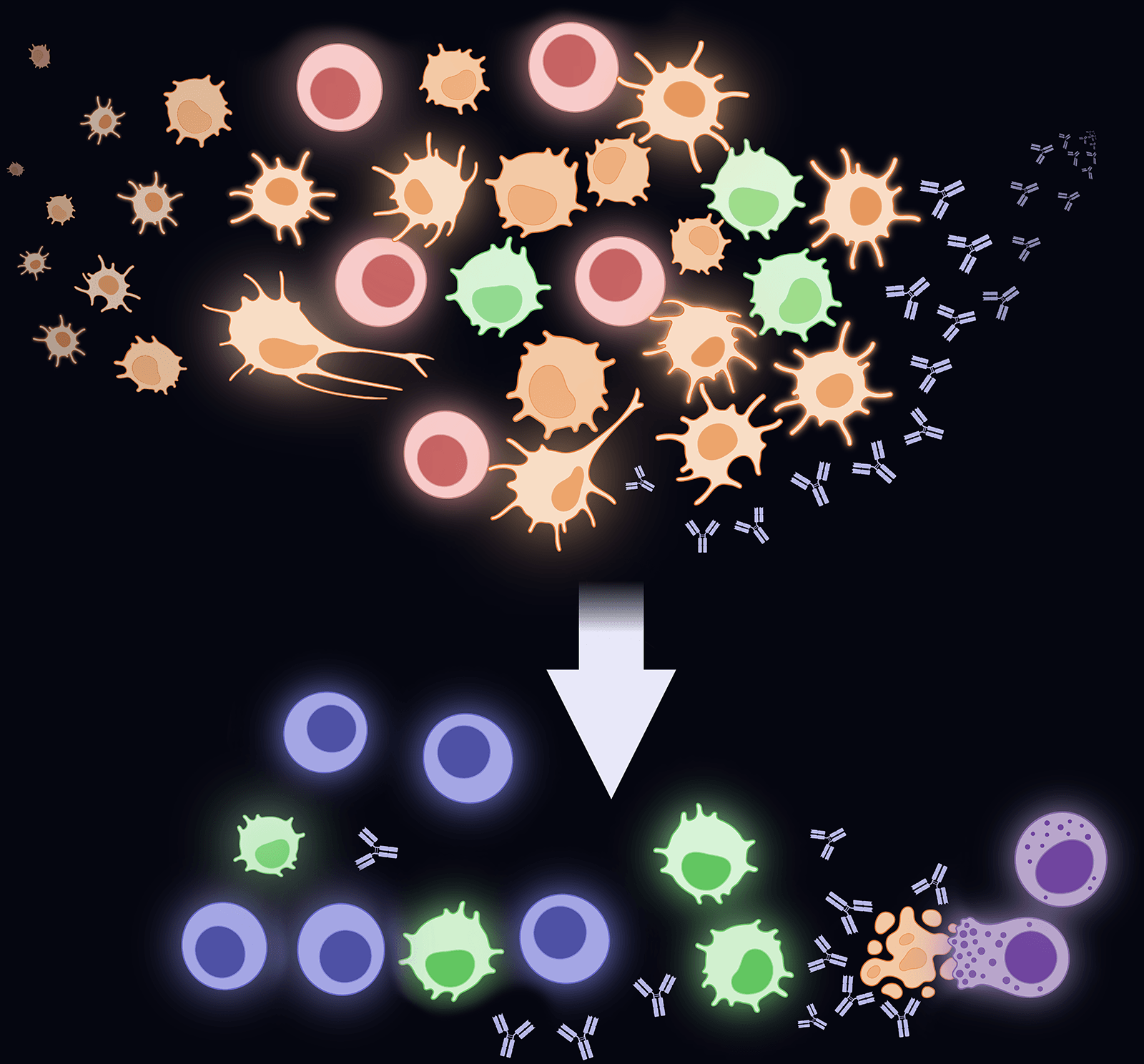A Paradigm Shift for Immune System Modulation
At Oxion Biologics, we are committed to redefining the treatment landscape of immune-mediated diseases by harnessing the unique approach of targeting OX40L using an Fc-optimized monoclonal antibody.
OX118 - Our Lead Program
A Best-in-Class anti-OX40 Ligand Monoclonal Antibody
OX118 is a fully human, anti-OX40L IgG1 monoclonal optimized for selective depletion of pro-inflammatory antigen-presenting cells (APC). It offers best-in-class characteristics and represents a genuine potential for true long-term disease modification by restoring balance in autoimmune and inflammatory diseases.
OX118 - Our lead program
A Targeted Approach to Balance Efficacy and Safety
Current Therapeutic Approaches
Existing therapies either risk patient safety or compromise long-term efficacy.
Broad targeting of immune cell populations
Indiscriminate effect gives safety concerns
Allosteric cytokine and pathway inhibition
Limited duration lowers long-term efficacy
OX118 - Balancing Efficacy and Safety
Targets an induced co-stimulatory pathway
How OX118 Differs:
• Precision targeting of pro-inflammatory APCs
• Promotes and restores regulatory T-cell function
• Enables lasting immune rebalancing
Targeting Mechanism:
Targets an induced co-stimulatory pathway
Indirect modulation of effector cells
Clearing of inflammatory APCs
Re-wiring T-cell responses
Induction of regulatory T cells
True disease modifying potential
Clinical Indications
OX118 can target a wide range of immune-mediated diseases ranging from mild and chronic to acute and life-threatening
OX118 - Best-in-Class in competitor benchmarking
4X better control of both CD4+ and CD8+ T cells
OX118 uses an innovative Fc-optimized approach to selectively target and deplete pro-inflammatory APCs. This approach achieves a significantly better efficacy in controlling the proliferation of both CD4+ and CD8+ T-cells compared with competing drug candidates when tested in an in vitro two-way MLR setting.
OX118 demonstrates a superior ability to modulate T-cell responses, promising enhanced treatment outcomes.
5X induction of regulatory T cells
OX118 demonstrates an exceptional capability in inducing regulatory T-cell phenotypes, performing up to five times better than its counterparts. This highlights its potential for modifying disease progression through correcting defective immune system self-regulation in autoimmunity.
Through its unique approach, OX118 offers a promising strategy for long-term disease management by restoring immune balance.
100% Survival in stringent disease models
In a human PBMC to mouse xenograft model of graft-versus-host disease (GVHD), OX118 has achieved 100% survival among treated subjects. This result underscores OX118's robust efficacy and safety profile in severe disease conditions.
By effectively managing immune responses without compromising health, OX118 sets a new benchmark in the treatment of complex autoimmune disorders, offering hope for substantial improvements in patient outcomes.

